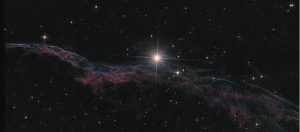Astronomy is more than a study; it is a way of life. Pace physics professor, Matthew Ganis, has acted as a role model as well as the liaison for involving the Pace community in a different type of adventure.
According to their website, Westchester Amateur Astronomers is a non-profit organization that educates and encourages individuals who are interested in learning more about the universe.
“The organization has been meeting on campus for about three to four years,” astronomy professor Matthew Ganis said. “We started out in Miller Lecture Hall and we’ve grown so much and want to continue to grow.”
Meeting the first Friday of each month, Westchester Amateur Astronomers has its own agenda revolving around current events and experiences with the outsideworld. Guest speakers often attend and touch on topics that interest involved students and members.
“You don’t have to be a sci- ence major to attend or become part of the club,” said Ganis. “We host speaking engagements on campus and the goal is to get stu- dents involved.”
The club aims to empower students and introduce them to individuals in different fields such as medicine and education. Professor Ganis feels that students should be aware of the organization and utilize it for more than just learning about the universe, but for expanding their network. Not only is this approach something that Pace takes pride in, but it also brings students closer together and strengthens their knowledge, creating a more diverse and well- rounded student.
“I think it would be interesting for some students,” junior com- munications major Griffin Tim- oney said.
Students may not necessarily regard outer-space as something they want to spend so much time learning about, but there are many other perspectives that the study offers.
“I would probably attend an event they hosted,” Timoney said. “I think the whole study of astronomy is fascinating and it can be enjoyable to look up at the stars and actually know where to look to see certain constellations.”
Griffin isn’t the only student that finds the organization and subject of astronomy interesting. With students becoming involved in many subjects to broaden their knowledge, it would be ideal that students engage in other aspects of the universe. Astronomy not only provides them a different outlook on the world, but puts critical thinking into drive.
“I think the topic is very interesting,” said junior applied psychology and human relations major Tatiana Hunter. “My favorite thing to do on a clear summer night is to sit in my backyard and look at the stars. It would be nice to know what else is out there.”
Many students may not know that an observatory located on the Pleasantville campus near the townhouses and Gannett House. However, it was closed by the university due to various reasons.
“I ran the observatory for quite some time,” Ganis said. “When I graduated from Pace, I was approached to teach the astronomy course, which is how I became an adjunct. One day I was at work and I received a phone call from my secretary about how they were tearing down the observatory. I was able to grab the telescope and it’s now in my home and I bring it to class for students to utilize during the semester.”
The observatory was a place for students to become involved with an independent study to conduct research. Students would then publish academic journals that reflected their findings from the observatory and supplemental material. However, due to the requirements to build facilities on campus, the observatory was taken down and has not been rebuilt, even though there are a growing number of students that are becoming interested in taking astronomy courses (which fill up to about 40 students a semester).
“I think the observatory would have been an asset of the university,” junior communications major Jonathan Calixto said. “It’s sad that our opinion isn’t taken into consideration; having the observatory would definitely be some- thing that would make our cam- pus stand out and attract potential students and donors.”
Students may not realize that the Westchester Amateur Astrono- mers is open to all. There is not much entailed in the membership process, which makes it easy for students to develop future rela- tionships, both academically and professionally. With the organi- zation interacting with the local community, there is a definite drive for furthering the knowl- edge of students outside of the classroom. Individuals who may be interested in learning about the organization will not only meet other interested students, but will be educated on an area of science that is constantly growing, with new discoveries always being made.
For more information about the Westchester Amateur Astronomers or their upcoming events, please visit their website at www. westchesterastronomers.org or contact Professor Matthew Ganis atmganis@pace.edu.

